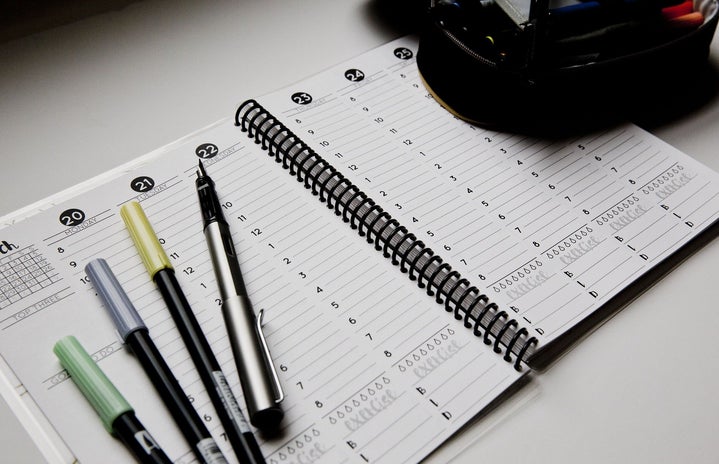When our commitments begin to pile up, whether it be papers, club events or studying, it’s important to try and maintain a healthy lifestyle at the same time. Unfortunately, we often find ourselves overwhelmed, stressed and anxious, which tends to negatively impact our routines. One of the greatest things affected by these things is our sleep schedule. Without a good night’s sleep, you are more likely to experience “brain fog,” which makes doing anything that much harder. As a chronic insomniac, I’ve experienced all the frustration accompanied by sleepless nights and have compiled a list of tips and products which can provide some relief.
Ear Plugs
Although it is best to not make sleeping with earplugs a routine habit, they do come in handy when needed. Whether you’re sleeping in a noisy building or trying to cope with loud roommates, wearing earplugs can help lessen the distracting sounds around you and allow you to drift off to sleep with more ease.
Melatonin
This naturally occurring supplement is best known for improving sleep. However, before taking any type of supplement, it is best to consult with your doctor to ensure its right for you. According to Verywell Health: “Melatonin is a naturally occurring hormone that helps with circadian rhythm, sleep disorders and insomnia.” Available over the counter, melatonin comes in capsule form that is either swallowed whole or dissolved under the tongue. I’ve taken melatonin in the past and did notice an improvement with my insomnia. Melatonin is easy enough to incorporate into your evening routine, but should not be regarded as a long-term remedy.
Lavender Essential Oil
Lavender is known for its calming and soothing aroma that often helps one to unwind and destress. It’s no surprise then that it is one of the most popular scents at any spa. In a Thai study on the efficacy of lavender essential oil, 20 participants found a “reduction in blood pressure, heart rate and respiratory rate.” In terms of mood improvement, participants experienced higher energy levels and reduced stress. Prior to sleep, I dab a few drops on my temples, wrists and the soles of my feet and find myself drifting off in no time. I use the brand Scentik, which can be found on Amazon or in Winners.
If you find that the essential oil in its pure form is not for you, Lush has a great lavender body lotion called “Sleepy,” which is equally soothing.
Sleep Masks
Sleep masks are an affordable way to get a better night’s sleep: they cover your eyes and increase your body’s own production of melatonin. By removing light from your room, your body is able to sustain a longer period of sleep. Just be sure to wash it frequently to avoid oil build up!
Sleep / Meditation Apps
Meditation is a great way to quiet the mind and center yourself. But I’ll be the first to admit, it is not my favourite thing in the world. I tend to have a lot of energy in the evening, so when I need to meditate, I find it too slow. Using an app tends to help me with this; having an instructor forces me to quiet my mind and pay attention. Apps like Calm and Headspace have various types of meditation tutorials to suit a variety of needs. My favourite are Headspace’s “Sleepcasts”, which are a combination of a “wind down” breathing exercise and a story. The best part about both of these apps? They’re completely free!



